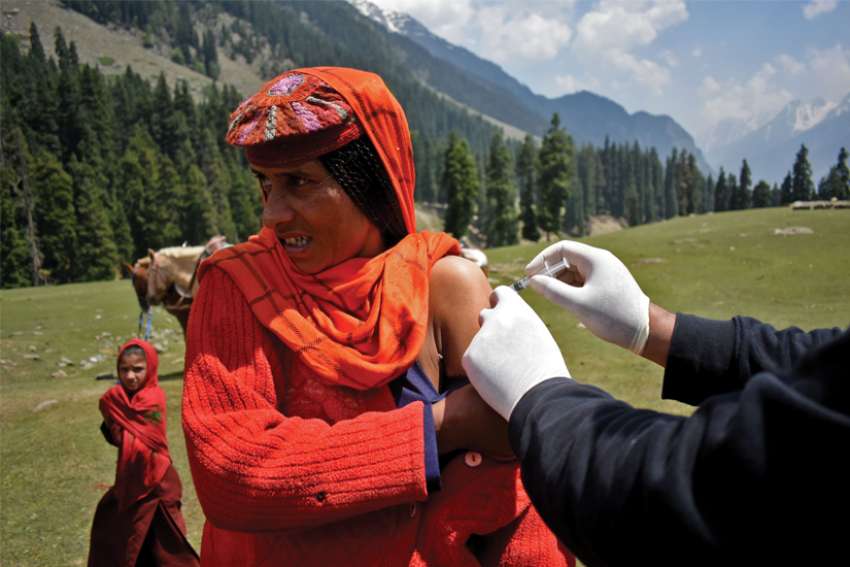But there’s a problem. Seventy-five per cent of those doses have been deployed in just 10 countries.
“The haves are opening up, while the have-nots are locking down,” WHO director Dr. Tedros Adhanom Ghebreyesus tweeted.
“Vaccine justice and equity are major concerns in the global south,” noted Development and Peace-Caritas Canada spokesperson Minaz Kerawala in an e-mail. “In many countries even health care workers and the elderly are waiting for their first dose. We think that in addition to funding for better vaccine access in the global south, what is needed is more investment in education to boost vaccine confidence and uptake.”
That’s exactly the kind of thing Development and Peace partners are good at — bringing people together, helping them to understand their situation, encouraging them to access services and demand justice. But much of that organizational power is lying in wait, unused two years into a pandemic that has so far killed 4.2 million people.
“Many of our partners haven’t yet had the luxury of planning for vaccination drives,” said Kerawala.
“There is a high willingness to take any vaccine in Tunisia. However, there are not enough vaccines,” Mohamed Haddad, editor-in-chief of Barr al Aman Recherche Médias, a Development and Peace partner in Tunis, said in an e-mail.
A July 20 vaccination clinic in Tunisia’s capital city went well, so far as it went.
“It was a huge success, very high turnout,” Haddad told The Catholic Register. “And a huge failure — not enough jabs for the people.”
Canada has tried to bridge the yawning vaccine chasm between rich and poor with $2.5 billion in funding. Most of the money is funnelled through the COVAX facility, a United Nations system that will deliver 1.8 billion doses by the end of this year.
Ottawa’s latest offering, after pre-purchasing enough vaccine to fully vaccinate Canada’s population at least four times over, is a July 12 donation of 17.7 million doses of AstraZeneca and the launch of a $10 million matching fund called “Give A Vax.” Just as when earthquakes and tsunamis hit around the world, Canadians are invited to donate with the assurance their government will match the amount they give. Up until Sept. 6 Canadians can give to UNICEF Canada either by going to www.unicef.ca/giveavax or by texting “vaccines” to 45678 on their mobile phones to donate $10.
If successful the matching fund will pay for full vaccination of approximately four million people.
That’s nice, but it’s absolutely not enough, said Haddad.
“Tunisians are struggling to have access to the first jab, while Westerns (Canadians, Americans, Europeans, etc.) are considering the possibility of throwing vaccines in the trash,” he said. “COVAX is a big failure.”
The Canadian Jesuits International (CJI) are helping the Darjeeling Jesuits vaccinate people in North Bengal, India.
“They, however, are buying (vaccines) through donations, including from CJI,” Canadian Jesuits International executive director Jenny Cafiso told The Catholic Register.
Neither the money nor the vaccines Canada is contributing to global vaccination efforts are enough, Cafiso said. “At this point, any contribution to the effort is important and it needs to be commended,” she said. “However, despite the headlines and the great PR splash, this will be a drop in the bucket compared to the need.”
Rather than putting all their eggs in the basket of the United Nations system, Cafiso would like to see her government fund more grassroots work.
“Canada would do well to also invest in supporting those organizations in the global south, especially those which have capillary presence in the local community, such as the Catholic Church,” she said. “To roll out information and educational campaigns which would combat vaccine hesitancy.”


